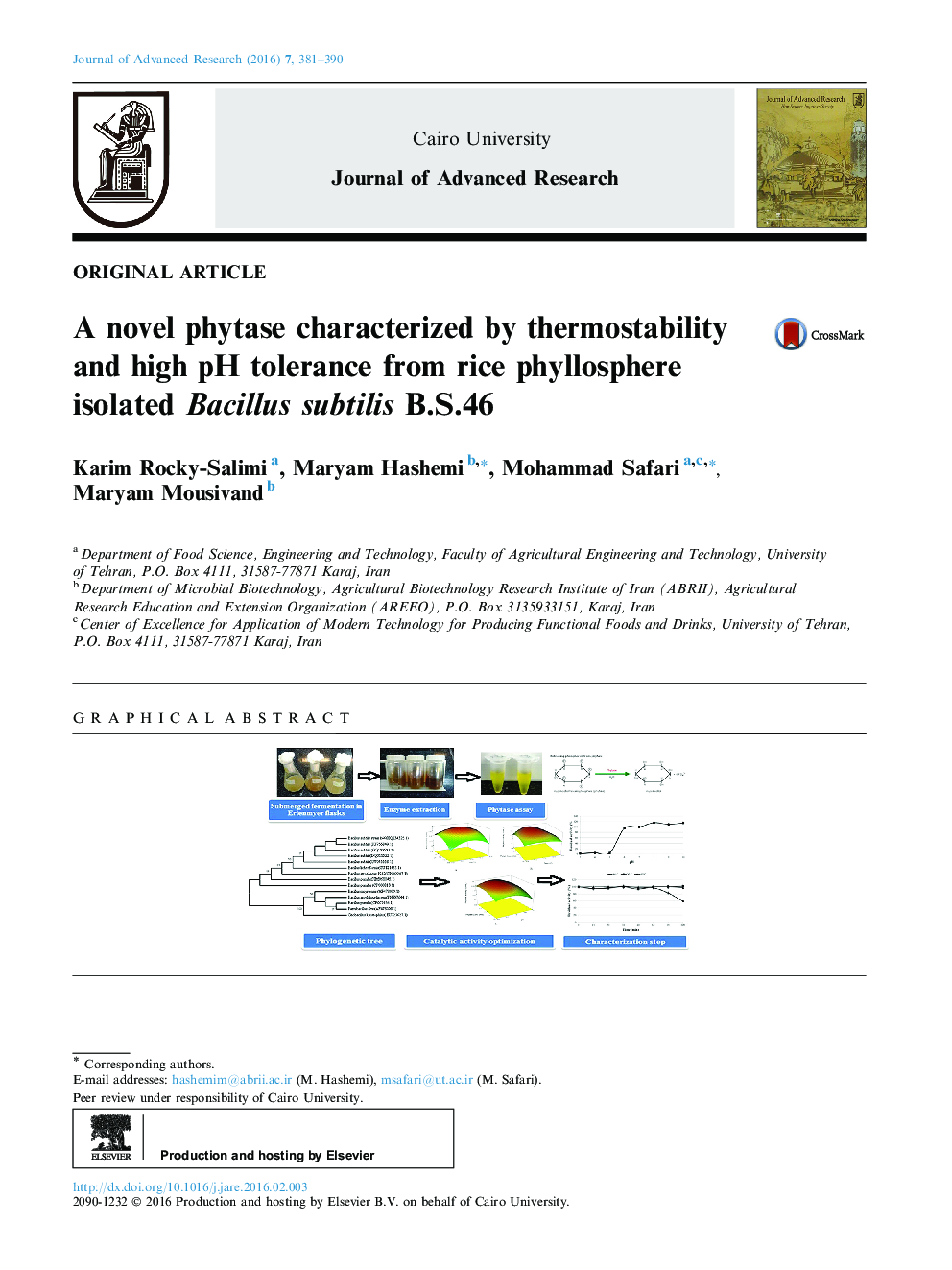| Article ID | Journal | Published Year | Pages | File Type |
|---|---|---|---|---|
| 826050 | Journal of Advanced Research | 2016 | 10 Pages |
In this study, an extracellular alkali-thermostable phytase producing bacteria, Bacillus subtilis B.S.46, were isolated and molecularly identified using 16S rRNA sequencing. Response surface methodology was applied to study the interaction effects of assay conditions to obtain optimum value for maximizing phytase activity. The optimization resulted in 137% (4.627 U/mL) increase in phytase activity under optimum condition (56.5 °C, pH 7.30 and 2.05 mM sodium phytate). The enzyme also showed 60–73% of maximum activity at wide ranges of temperature (47–68 °C), pH (6.3–8.0) and phytate concentration (1.40–2.50 mM). The partially purified phytase demonstrated high stability over a wide range of pH (6.0–10.0) after 24 h, retaining 85% of its initial activity at pH 6 and even interestingly, the phytase activity enhanced at pH 8.0–10.0. It also exhibited thermostability, retaining about 60% of its original activity after 2 h at 60 °C. Cations such as Ca2+ and Li+ enhanced the phytase activity by 10–46% at 1 mM concentration. The phytase activity was completely inhibited by Cu2+, Mg2+, Fe2+, Zn2+, Hg2+ and Mn2+ and the inhibition was in a dose dependent manner. B. subtilis B.S.46 phytase had interesting characteristics to be considered as animal feed additive, dephytinization of food ingredients, and bioremediation of phosphorous pollution in the environment.
Graphical abstractFigure optionsDownload full-size imageDownload as PowerPoint slide
